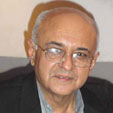
Amit Khanna

Christopher Dalton
Christopher Dalton — quintessentially a film critic /essayist /festival advisor — began his journalistic odyssey with The Hindu. He’s the editor of Cinematic Illusions & the Journal of Indian Cinema; founder of the Cinema Society of India (Kerala), which screens films; CEO of House of Illusions (Mumbai), a film studio that creates meaningful cinema; chief advisory board member of the Kautik International Film Festival (Uttarakhand); & artistic director of the Chalachitram National Film Festival (Assam). He has served on the music jury of Mahatma Gandhi University & on the film jury of the 67th National Film Awards of India.
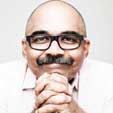
Baradwaj Rangan
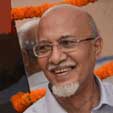
Apurba Sarma

Deepa Gahlot
Deepa Gahlot is a National Award winning film critic, theatre critic, book author, and scriptwriter. She has written several books on cinema, including the biographies of Shammi Kapoor and Shah Rukh Khan; written-directed a few documentary films and radio shows; edited the journals of NFDC and WICA; and headed the theater & film programming at the National Center for the Performing Arts (NCPA). She is also the founder /festival director of the upcoming Waterfront Indie Film Festival.
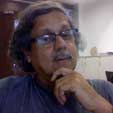
Anil Zankar
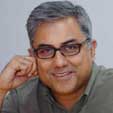
Aseem Chhabra
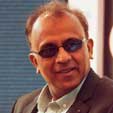
Balaji Vittal
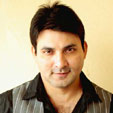
Yasser Usman

Dnyanesh Moghe
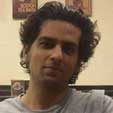
Devdutt Trivedi

Rashmi Doraiswamy

Saumil Gandhi
Saumil Gandhi is an award-winning film critic and a co-founder of the pioneer Indian film reviews site, Upper Stall.
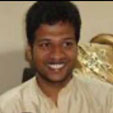
Sreehari Nair
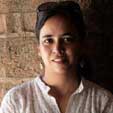
Sukanya Verma
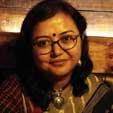
Jayashree Chakravarti
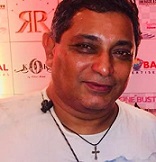
Johnson Thomas
Johnson Thomas reviews books and films for The Free Press Journal and DNA. He has served on the Panorama jury of IFFI.

Rahul Desai

Batul Mukhtiar
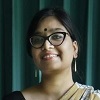
Tanushree Ghosh
Tanushree Ghosh is a special correspondent who writes on cinema for Money Control. Previously, she was with the Indian Express, BS Weekend, and Mint Lounge. She has served on the SIFFCY jury.
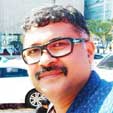
Premchand
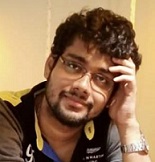
Amartya Acharya
Amartya Acharya is a PhD scholar who reviews films for High on Films, Digital Mafia Talkies, Film Fugitives, Upper Stall, and the Journal of Indian Cinema. Additionally, he does film podcasts.
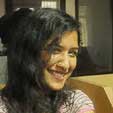
Cris
Cris started her journalistic life as a features writer for the Kerala edition of the Deccan Chronicle, giving up her previous profession, Engineering. She presently reviews films, interviews people, and writes predominantly on film and social issues, for The News Minute.

Ashameera Aiyappan
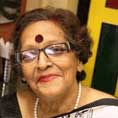
Shoma A. Chatterji
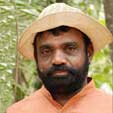
Vijaykrishnan
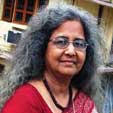
Vijay Sharma
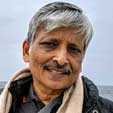
Babu Subramanian
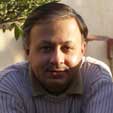
Utpal Borpujari
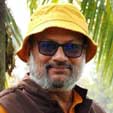
Debasis Mukhopadhyay
Debasis Mukhopadhyay is the author of 12 books, a librarian, and a film historian/scholar specialising in the works of Satyajit Ray. He has written a reference book on the master, co-edited a book on Pather Panchali, and worked as an assistant editor of 4 books authored by Ray, who called him a “compendium of my works”.
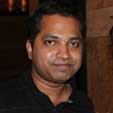
Anirban Lahiri
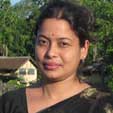
Darshana Goswami
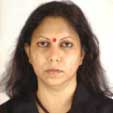
Ratnottama Sengupta
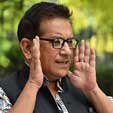
Utpal Datta

Bikas Mishra

Oorvazi Irani
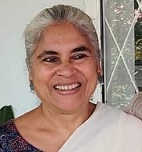
Anjali Monteiro
Anjali Monteiro is a retired Professor at the TISS School of Media & Cultural Studies with a Ph.D in Sociology. Jointly with KP Jayasankar, she has made over 40 documentaries. She is the recipient of a Howard Thomas Memorial Commonwealth fellowship, Sydney, & an Erasmus Mundus scholarship, Sweden. She has been conferred a Special Mention – National Film Award for the best book on cinema, a Prof. Satish Bahadur Lifetime Achievement Award for Outstanding Contribution to Film Education from NID; a Basil Wright Prize; & a jury’s commendation in the Intangible Culture category at the Royal Anthropological Institute Festival, UK.
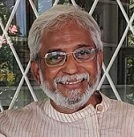
KP Jayasankar
KP Jayasankar is a retired Professor at the TISS School of Media & Cultural Studies with a Ph.D in Humanities & Social Sciences. Jointly with Anjali Monteiro, he has made over 40 documentaries. He is the recipient of a Heidelberg University scholarship; the Howard Thomas Memorial Commonwealth fellowship, London; the Erasmus Mundus scholarship, Sweden; & the Key Technology Partner scholarship, Sydney. He has been conferred a Special Mention – National Film Award for the best book on cinema, a Prof. Satish Bahadur Lifetime Achievement Award for Outstanding Contribution to Film Education from NID; a Basil Wright Prize; & a jury’s commendation in the Intangible Culture category at the Royal Anthropological Institute Festival, UK.
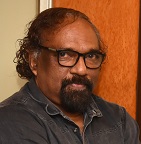
Joshy Joseph
Joshy Joseph is the winner of 7 National Film Awards; 6 for documentary films, and 1 for the best book on cinema.
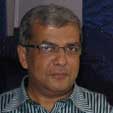
Saibal Chatterjee
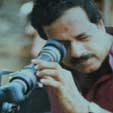
Madhu Eravankara
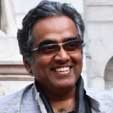
Shantanu Ray Chaudhuri
Shantanu Ray Chaudhuri is the executive editor at Penguin Random House India; a former publisher and features editor of film magazines ‘Lights Camera Action’ and ‘Cinemaazi’, respectively; and an author of 2 books. His writings on cinema appear in The Daily Eye, Silhouette, Outlook India, and Film Companion. Books commissioned and edited by him while he was the executive editor at HarperCollins Publishers India have won National Film Awards for Best Writing on Cinema as well as an award at the Mumbai Film Festival. Additionally, he is the recipient of the Editor of the Year Award instituted by the apex publishing body in India.

Piyush Roy
Piyush Roy is the winner of the Sir William Darling Memorial Prize by the University of Edinburgh, the Sue Grant Service Award, and the Silver Award at the Shine! British Council International Student Awards (all UK); and a National Film Award (India). Formely, he was the editor of Stardust, advisor of the Global University Students Film Festival (Hong Kong), and festival director of the Edinburgh Festival of Indian Films and Docs (UK). Presently, he’s an author, docu filmmaker, and the founding dean & professor of the School of Liberal Arts and Sciences, RV University.
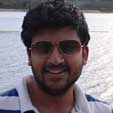
Tanul Thakur
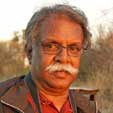
Theodore Baskaran
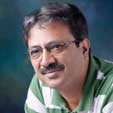
Anirudha Bhattacharjee
Anirudha Bhattacharjee is the co-author of four books including bios of father and son SD and RD Burman. He is a film/music quizzer, a musician, and a columnist for Quint and Scroll. Previously, he had film columns in The Statesman and Analalok, Calcutta. He has served on the jury of the National Film Awards. His RD Burman book has won the National Film Award, and his book titled Gaata Rahe Mera Dil the inaugural MAMI award for writing on cinema.
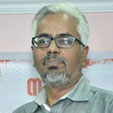
CS Venkiteswaran
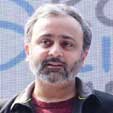
Jai Arjun Singh
past members, who are no more with us
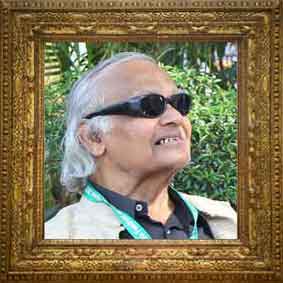
Late PK Nair
Pune
PK Nair was the founder of the National Film Archive of India (NFAI), and one of the pioneers behind the setting up of the International Film Festival of Kerala (IFFK). A documentary on him won 2 National Film Awards.
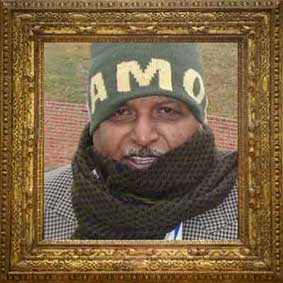
Late KNT Sastry
Kota
KNT Sastry won 7 National Film Awards — Best Film Critic, Book Publisher, Film Book Writer, Docu, First Film, Feature Film, & Regional Film. He served on the National Film Awards and 5 times on the IFFI Panorama jury.
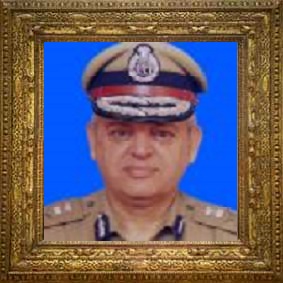
Late Gautam Kaul
Delhi
Gautam Kaul was a former president of FCCI as well as the Federation of Film Societies of India; a National Film Award winning journalist; and former columnist of Filmfare, Screen, Super Cinema, the Journal of Indian Cinema, and The Hindu.
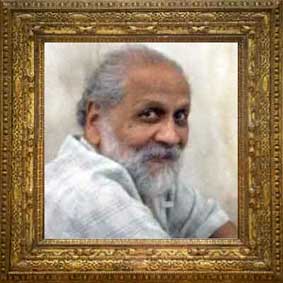
Late Ervell Menezes
Mumbai
Ervell E. Menezes was a film reviewer /journalist at the Indian Express. Post retirement, he wrote a biographical book that “makes journalism a hero; journalism that took up the cause of downtrodden & exposed rackets.”
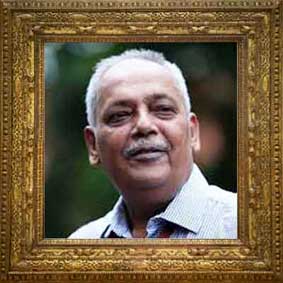
Late Altaf Mazid
Guwahati
Altaf Mazid was a double National Film Award winner — one as a film critic and the other as a documentary filmmaker. He served on the film jury of the Assam State Awards, IFFI, IFFK, Dubai, Moscow, and Cannes.
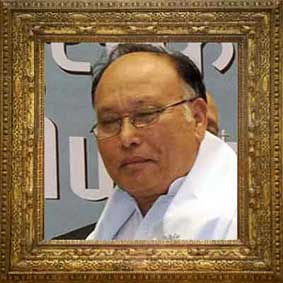
Late RK Bidur Singh
Imphal
RK Bidur was a National and State Award winning film critic, recipient of a Certificate of Honour by the Govt. of Manipur, founder of the Manipur Film Journalist/Critics Association, and festival director of NE Film Festival.
